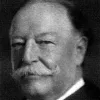It is easy enough to be pleasant,
When life flows by like a song,
But the man worth while is one who will smile,
When everything goes dead wrong.Ella Wheeler Wilcox (1850-1919) American author, poet, temperance advocate, spiritualist
Poem (1892), “Worth While,” st. 1, An Erring Woman’s Love
(Source)
Sometimes called "The Man Worth While." Collected again in Poems of Cheer (1910).
Quotations about:
problems
Note not all quotations have been tagged, so Search may find additional quotes on this topic.
However, as we have just pointed out, brains which are absorbed in some bit of wisdom, or folly, or, as it often happens, in both at once, are but slowly accessible to the things of actual life. Their own destiny is a far-off thing to them. There results from such concentration a passivity, which, if it were the outcome of reasoning, would resemble philosophy. One declines, descends, trickles away, even crumbles away, and yet is hardly conscious of it one’s self. It always ends, it is true, in an awakening, but the awakening is tardy. In the meantime, it seems as though we held ourselves neutral in the game which is going on between our happiness and our unhappiness. We are the stake, and we look on at the game with indifference.
[Du reste, comme nous venons de l’indiquer, les cerveaux absorbés dans une sagesse, ou dans une folie, ou, ce qui arrive souvent, dans les deux à la fois, ne sont que très lentement perméables aux choses de la vie. Leur propre destin leur est lointain. Il résulte de ces concentrations-là une passivité qui, si elle était raisonnée, ressemblerait à la philosophie. On décline, on descend, on s’écoule, on s’écroule même, sans trop s’en apercevoir. Cela finit toujours, il est vrai, par un réveil, mais tardif. En attendant, il semble qu’on soit neutre dans le jeu qui se joue entre notre bonheur et notre malheur. On est l’enjeu, et l’on regarde la partie avec indifférence.]
Victor Hugo (1802-1885) French writer
Les Misérables, Part 3 “Marius,” Book 5 “The Excellence of Misfortune,” ch. 4 (3.5.4) (1862) [tr. Hapgood (1887)]
(Source)
(Source (French)). Alternate translations:However, as we have just indicated, brains absorbed in wisdom, or in folly, or, as often happens, in both at once, are but very slowly permeable by the affairs of life. Their own destiny is far from them. There results from such concentrations of mind a passivity which, if it were due to reason, would resemble philosophy . We decline, we descend, we fall, we are even overthrown, and we hardly perceive it. This always ends, it is true, by an awakening, but a tardy one. In the meantime, it seems as though we were neutral in the game which is being played between our good and our ill fortune. We are the stake, yet we look upon the contest with indifference.
[tr. Wilbour (1862)]As we have remarked, things of this world permeate very slowly brains absorbed in wisdom, or mania, or, as often happens, in both at once. Their own destiny is remote from them. The result of such concentrations is a passiveness which, were it of a reasoning nature, would resemble philosophy. Men sink, pass away, drift away, even crumble away without exactly noticing, though this always ends with a re-awakening, but a tardy one. In the meanwhile, it appears as if they are neutral in the game which is being played between their happiness and misery; they are the stakes, and look on at the game with indifference.
[tr. Wraxall (1862)]In general, as we have already suggested, minds absorbed in wisdom or in folly, or in both at once as often happens, are little affected by the vicissitudes of daily life. Their personal destiny is a thing remote from them. Such detachment creates a state of acquiescence which, if it were the outcome of reflection, might be termed philosophical. But they submit to losses and reverses, even to physical decay, without being much aware of them. It is true that in the end there is an awakening, but it is late in coming. In the meantime they stand as it were aloof from the play of personal fortune and misfortune, pawns in a game of which they are detached spectators.
[tr. Denny (1976)]However, as we have just indicated, brains absorbed in wisdom, in folly, or, as often happens, in both at once, are permeated only slowly by the affairs of life. Their own destiny is far from them. From such concentrations of mind comes a passivity which, if due to reason, would resemble philosophy. We decline, we descend, we fall, we are even overthrown, and we hardly notice it. This always ends, it is true, in an awakening, but a tardy one. In the meantime, we seem neutrals in the game being played between our good and our ill fortune. We are the stake, yet we look on the contest with indifference.
[tr. Wilbour/Fahnestock/MacAfee (1987)]However, as we have just suggested, minds engrossed in wisdom or folly , or, as is often the case, in both at the same time, are only very slowly pervious to matters of everyday life. Their own destiny is far removed from them. resulting from this kind of concentration is a passivity, which, if there were any reasoning behind it, would seem philosophical. Such minds go into a decline, they sink, they languish, they even come to grief without really being aware of it. True, this always ends with an awakening, but a belated one. In the meantime it is as if they had no interest in the game that plays out between their happiness and their unhappiness. They who are themselves as stake watch the game with indifference.
[tr. Donougher (2013)]
Last year we said, “Things can’t go on like this,” and they didn’t, they got worse.
Will Rogers (1879-1935) American humorist
Column (1930-01-11)
(Source)
Collected in Sanity Is Where You Find It, ch. 8 (1955) [ed. Donald Day].
THE DOCTOR: Listen, listen, gotta dash. Things happening. Well, four things. Well, four things and a lizard.
Steven Moffat (b. 1961) Scottish television writer, producer
Doctor Who, 3×10 “Blink” (2007-06-09)
(Source)
A thing I am not anxious to preserve
Is this frail life; for soon as one woe ends,
Others commence, and our weak eyes discern not
What evil fortunes yet remain behind.[αἰεὶ τὸ µὲν ζῇ, τὸ δὲ µεθίσταται κακόν,
τὸ δ’ αὖ πέφηνεν αὖθις ἐξ ἀρχῆς νέον.]Euripides (485?-406? BC) Greek tragic dramatist
Æolus [Αἴολος], frag. 35 (TGF) [tr. Wodhull (1809)]
(Source)
Nauck frag. 35, Barnes frag. 51, Musgrave frag. 15, 16. (Source (Greek)). Alternate translations:One ill is ever clinging;
One treads upon its heels;
A third, in distance springing,
Its fearful front reveals.
[tr. Peacock (1897)]One trouble alive and well, another gone,
as all afresh a new one comes our way.
[Source]
Trouble, like the hill ahead, straightens out when you advance upon it.
Marcelene Cox (1900-1998) American writer, columnist, aphorist
“Ask Any Woman” column, Ladies’ Home Journal (1953-05)
(Source)
When life hands you lemons, make whiskey sours.
W. C. Fields (1880-1946) American entertainer [b. William Claude Dukenfield]
(Attributed)
While attributed to Fields, possibly on a radio show, there is no documentation to indicate he ever actually said it.
More exploration of other references: The Big Apple: “When life gives you lemons, make a whiskey sour. For God’s sake, we’re adults now, people”.
It’s no use crying over spilt evils. It’s better to mop them up laughing.
Eleanor Farjeon (1881-1965) English author
Gypsy and Ginger, “Gypsy and Ginger Take Things Seriously” [Gypsy] (1920)
(Source)
Sometimes it is good for us to have troubles and hardships, for they often call us back to our own hearts. Once there, we know ourselves to be strangers in this world, and we know that we may not believe in anything that it has to offer.
[Bonum nobis est, quod aliquando habeamus aliquas gravitates et contrarietates, quia sæpe hominem ad cor revocant, quatenus se in exilio esse cognoscat, nec spem suam in aliqua mundi re ponat.]
Thomas à Kempis (c. 1380-1471) German-Dutch priest, author
The Imitation of Christ [De Imitatione Christi], Book 1, ch. 12, v. 1 (1.12.1) (c. 1418-27) [tr. Creasy (1989)]
(Source)
See Psalm 119:71.
(Source (Latin)). Alternate translations:It is good that we have sometime griefs and adversities, for they drive a man to behold himself, and to see that he is here but as in an exile, and be learned thereby to know that he ought not to put his trust in any worldly thing.
[tr. Whitford/Raynal (1530/1871)]It is good that we sometimes have griefs and adversities, for they drive a man to behold himself and to see that he is but here as in exile, and to learn thereby that he ought not put his trust in any worldly thing.
[tr. Whitford/Gardiner (1530/1955)]It is good for us sometimes to suffer affliction and contradiction, because they oftentimes call a man home unto himselfe. They make a man to know that he liveth here but in banishment, and that he must not trust to any thing in this world.
[tr. Page (1639), x.12.1-2]It is good for me that I have been in Trouble, says David. Nor is it David's Case alone, for many Men have reason to bless that Providence which sends Crosses and Calamities upon them. These bring Man's Thoughts home, put him upon Reflection, and help him to understand himself and his Condition. They shew him, that he is in a State of Exile and Pilgrimage, and forbid him to set up his Hope and Rest, in a strange Country, where he is no better than a Sojourner.
[tr. Stanhope (1696; 1706 ed.)]It is good for man to suffer the adversity of this earthly life; for it brings him back to the sacred retirement of the heart, where only he finds, that he is an exile from his native home, and ought not to place his trust in any worldly enjoyment.
[tr. Payne (1803)]It is good that we have sometimes some troubles and crosses; for they often make a man enter into himself, and consider that he is here in banishment, and ought not to place his trust in any worldly thing.
[ed. Parker (1841)]It is good for us that we sometimes suffer contrarieties and vexations; for they call a man back to the retirement of his heart, where only he finds, that, as he is an exile from his native home, he ought not to place his trust in any worldly enjoyment.
[tr. Dibdin (1851)]It is good for us to have sometimes troubles and adversities, for they make a man enter into himself, that he may know that he is in exile, and may not place his hopes in anything of the world.
[ed. Bagster (1860)]It is good for us that we sometimes have sorrows and adversities, for they often make a man lay to heart that he is only a stranger and sojourner, and may not put his trust in any worldly thing.
[tr. Benham (1874)]It is good that we have sometimes troubles and crosses; for they often make a man enter into himself, and consider that he is here in banishment, and ought not to place his trust in any worldly thing.
[tr. Anon. (1901)]It is good for us to have trials and troubles at times, for they often remind us that we are on probation and ought not to hope in any worldly thing.
[tr. Croft/Bolton (1940)]It is good for us at times to have some burdens and adversities, for they often call a man back to his heart, that he may recognise himself to be in exile, and not fix his hope on anything earthly.
[tr. Daplyn (1952)]It is good for us to encounter troubles and adversities from time to time, for trouble often compels a man to search his own heart. It reminds him that he is an exile here, and that he can put his trust in nothing in this world.
[tr. Sherley-Price (1952)]It's good for you to go through difficult times now and again, and to have your will thwarted; the effect is often to make a man think -- make him realize that he is living in exile, and it is no use relying upon any earthly support.
[tr. Knox-Oakley (1959)]It is a good thing that we have to face difficulties and opposition from time to time, because this brings us back to ourselves; it makes us realize that we are exiles and cannot pin our hopes on anything in this world.
[tr. Knott (1962)]It is good for us now and then to experience difficulties and adversity; for they make man realize again that he is an exile and should not put his hopes on any worldly thing.
[tr. Rooney (1979)]
It is characteristic of all deep human problems that they are not to be approached without some humor and some bewilderment.
Freeman Dyson (1923-2020) English-American theoretical physicist, mathematician, futurist
Disturbing the Universe, ch. 1 (1979)
(Source)
When a people are confronted with problems that are both incomprehensible and unbearable, they lash out not at those who contrived the problems but at those who expose them. When they are confronted by moral problems that they find insoluble, or perhaps intolerable, they blame the moralists. The anxieties, tensions, revulsions of our day create an atmosphere in which it is almost impossible to think clearly and dispassionately about just those problems which most imperatively require reason and objectivity — problems of adjustment to fundamental change.
Henry Steele Commager (1902-1998) American historian, writer, activist
“The University and the Community of Learning,” speech, Kent State University, Ohio (10 Apr 1971)
(Source)
Some of you young folks been saying to me, “Hey Pops, what you mean ‘What a wonderful world’? How about all them wars all over the place? You call them wonderful? And how about hunger and pollution? That ain’t so wonderful either.” Well how about listening to old Pops for a minute. Seems to me, it aint the world that’s so bad but what we’re doin’ to it. And all I’m saying is, see, what a wonderful world it would be if only we’d give it a chance. Love, baby, love. That’s the secret, yeah. If lots more of us loved each other, we’d solve lots more problems. And then this world would be a gasser. That’s wha’ ol’ Pops keeps saying.
Louis "Satchmo" Armstrong (1900-1971) American musician
Spoken introduction to “What a Wonderful World” (1970)
(Source)
It would seem … that man has been shocked by the war into forgetting how to be a political animal. This suspicion is confirmed by the spread of Fascism, which is a headlong flight into fantasy from the necessity for political thought. There is nothing more obvious about the post-war situation than that it is novel, springs from causes which have not yet been analysed, and cannot be relieved until this analysis is complete and has been made the basis of a new social formula. Yet persons supporting Fascism behave as if man were already in possession of principles which would enable him to deal with all our problems, and as if it were only a question of appointing a dictator to apply them.
Rebecca West (1892-1983) British author, journalist, literary critic, travel writer [pseud. for Cicily Isabel Fairfield]
“The Necessity and Grandeur of the International Ideal” (1934)
(Source)
Men have made an idol of luck as an excuse for their own thoughtlessness. Luck seldom measures swords with wisdom. Most things in life quick wit and sharp vision can set right.
Democritus (c. 460 BC - c. 370 BC) Greek philosopher
Frag. 119 (Diels) [tr. Bakewell (1907)]
(Source)
Bakewell lists this under "The Golden Sayings of Democritus." Freeman notes this as one of the Gnômae, from a collection called "Maxims of Democratês," but because Stobaeus quotes many of these as "Maxims of Democritus," they are generally attributed to the latter.Alternate translations:
- "Men have fashioned an image of Chance as an excuse for their own stupidity. For Chance rarely conflicts with intelligence, and most things in life can be set in order by an intelligent sharpsightedness." [tr. Freeman (1948)]
- "Men fashioned the image of chance as an excuse for their own thoughtlessness; for chance rarely fights with wisdom, and a man of intelligence will, by foresight, set straight most things in his life." [tr. Barnes (1987)]
And bad luck reveals those who are not real friends, but just happen to be so because of utility.
[ἡ δ᾽ ἀτυχία δηλοῖ τοὺς μὴ ὄντως [20] ὄντας φίλους, ἀλλὰ διὰ τὸ χρήσιμον τυχόντας.]
Aristotle (384-322 BC) Greek philosopher
Eudemian Ethics [Ἠθικὰ Εὐδήμεια], Book 7, ch. 2 / 1238a.19-20 [tr. Reeve (2021)]
(Source)
(Source (Greek)). Alternate translations:Misfortune shows those who are not really friends, but friends only for some accidental utility.
[tr. Solomon (1915)]Misfortune shows those who are not friends really but only because of some casual utility.
[tr. Rackham (1981)]But misfortune shows those who are friends not really but because of chance utility.
[tr. Simpson (2013)]
Necessity may well be called the mother of invention — but calamity is the test of integrity.
Samuel Richardson (1689-1761) English writer and printer
Clarissa, or, The History of a Young Lady, Letter 47 (1748)
(Source)
LONDO: Big concerns grow from small concerns. You plant them, water them with tears, fertilize them with unconcern. If you ignore them, they grow.
I also think living in the country gives you faith. All you have to do is get up and look at the mountains and look at the other animals to realize that your problems are mostly made up or exacerbated by humans. But human life isn’t necessarily life. There’s so much more out there.
There is something wrong with our world, something fundamentally and basically wrong. I don’t think we have to look too far to see that. I’m sure that most of you would agree with me in making that assertion. And when we stop to analyze the cause of our world’s ills, many things come to mind. We begin to wonder if it is due to the fact that we don’t know enough. But it can’t be that. Because in terms of accumulated knowledge we know more today than men have known in any period of human history. We have the facts at our disposal. We know more about mathematics, about science, about social science, and philosophy than we’ve ever known in any period of the world’s history. So it can’t be because we don’t know enough. And then we wonder if it is due to the fact that our scientific genius lags behind. That is, if we have not made enough progress scientifically. Well then, it can’t be that. For our scientific progress over the past years has been amazing. Man through his scientific genius has been able to warp distance and place time in chains, so that today it’s possible to eat breakfast in New York City and supper in London, England. Back in about 1753 it took a letter three days to go from New York City to Washington, and today you can go from here to China in less time than that. It can’t be because man is stagnant in his scientific progress. Man’s scientific genius has been amazing. I think we have to look much deeper than that if we are to find the real cause of man’s problems and the real cause of the world’s ills today. If we are to really find it I think we will have to look in the hearts and souls of men.
Martin Luther King, Jr. (1929-1968) American clergyman, civil rights leader, social activist, preacher
“Rediscovering Lost Values,” Sermon, Second Baptist Church, Detroit (28 Feb 1954)
(Source)
I doubt if there is in the world a single problem, whether social, political, or economic, which would not find ready solution if men and nations would rule their lives according to the plain teaching of the Sermon on the Mount.
Franklin Delano Roosevelt (1882-1945) American lawyer, politician, statesman, US President (1933-1945)
Letter (1938-06-15) to Rev. Daniel Poling, “Greeting to the World’s Christian Endeavor Convention in Melbourne, Australia”
(Source)
“Simple things are never problems,” I told her. “Unfortunate, maybe, but if it isn’t complicated, it isn’t really a problem.”
The Goddess nodded. “Very good, Vlad; I didn’t expect such wisdom from you.”
I grunted and didn’t tell her I was quoting my grandfather; I’d rather she stayed impressed.
You can judge a leader by the size of the problem he tackles — people nearly always pick a problem their own size, and ignore or leave to others the bigger or smaller ones. The chief executive should be thinking about the long-term changes which will bring growth or decay to different parts of the enterprise, not fussing over day-to-day problems. Other people can cope with the waves, it’s his job to watch the tide.
Poverty is the only burden which is not lightened by being shared with others.
Jean Paul Richter (1763-1825) German writer, art historian, philosopher, littérateur [Johann Paul Friedrich Richter; pseud. Jean Paul]
(Attributed)
(Source)
In Maturin M. Ballou, Edge-Tools of Speech (1886)
Science is as yet in its infancy, and we can foretell little of the future save that the thing that has not been is the thing that shall be; that no beliefs, no values, no institutions are safe. So far from being an isolated phenomenon the late war is only an example of the disruptive result that we may constantly expect from the progress of science. The future will be no primrose path. It will have its own problems. Some will be the secular problems of the past, giant flowers of evil blossoming at last to their own destruction. Others will be wholly new. Whether in the end man will survive his ascensions of power we cannot tell. But the problem is no new one. It is the old paradox of freedom re-enacted with mankind for actor and the earth for stage.
J.B.S. Haldane (1892-1964) English geneticist [John Burden Sanderson Haldane]
“Daedalus, or Science and the Future,” speech, Cambridge (24 Feb 1923)
(Source)
The cruelties and the obstacles of this swiftly changing planet will not yield to obsolete dogmas and outworn slogans. It cannot be moved by those who cling to a present which is already dying, who prefer the illusion of security to the excitement and danger which comes with even the most peaceful progress. This world demands the qualities of youth: not a time of life but a state of mind, a temper of the will, a quality of the imagination, a predominance of courage over timidity, of the appetite for adventure over the love of ease.
Robert Francis Kennedy (1925-1968) American politician
“Day of Affirmation,” address, University of Capetown, South Africa (6 Jun 1966)
(Source)
For at least two thirds of our miseries spring from human stupidity, human malice, and those great motivators and justifiers of malice and stupidity, idealism, dogmatism, and proselytizing zeal on behalf of religious or political idols.
Aldous Huxley (1894-1963) English novelist, essayist and critic
“Knowledge and Understanding,” Vedanta and the West (May-Jun 1956)
(Source)
Revision of a 1955 lecture given at the Vedanta Society of Southern California; this phrase, however, does not occur in it (the surrounding text is found around the 10:00 mark). Reprinted in Adonis and the Alphabet, and Other Essays (in the US Tomorrow and Tomorrow and Tomorrow, and Other Essays) (1956).
We have no reason to harbor any mistrust against our world, for it is not against us. If it has terrors, they are our terrors; if it has abysses, these abysses belong to us; if there are dangers, we must try to love them. And if only we arrange our life in accordance with the principle which tells us that we must always trust in the difficult, then what now appears to us as the most alien will become our most intimate and trusted experience. How could we forget those ancient myths that stand at the beginning of all races, the myths about dragons that at the last moment are transformed into princesses? Perhaps all the dragons in our lives are princesses who are only waiting to see us act, just once, with beauty and courage. Perhaps everything that frightens us is, in its deepest essence, something helpless that wants our love.
Rainer Maria Rilke (1875-1963) German poet
Letters to a Young Poet, Letter 8, 12 Aug 1904 (1929)
(Source)
There are no problems which we cannot solve together, and very few that any of us can settle by himself.
Lyndon B. Johnson (1908-1973) American politician, educator, US President (1963-69)
Speech (1964-11-28), Press Conference, LBJ Ranch, Johnson City, Texas
(Source)
Regarding the Atlantic Alliance (NATO). Variant: "There are no problems we cannot solve together, and very few that we can solve by ourselves."
And we must face the fact that the United States is neither omnipotent or omniscient — that we are only six percent of the world’s population — that we cannot impose our will upon the other ninety-four percent of mankind — that we cannot right every wrong or reverse each adversity — and that therefore there cannot be an American solution to every world problem.
Doubt is to certainty as neurosis is to psychosis. The neurotic is in doubt and has fears about persons and things; the psychotic has convictions and makes claims about them. In short, the neurotic has problems, the psychotic has solutions.
Thomas Szasz (1920-2012) Hungarian-American psychiatrist, educator
“Mental Illness,” The Second Sin (1973)
(Source)
When I look back on all these worries I remember the story of the old man who said on his deathbed that he had had a lot of trouble in his life, most of which had never happened.
Winston Churchill (1874-1965) British statesman and author
The Second World War, Vol. 2: Their Finest Hour, ch. 23 “September Tensions” (1949)
(Source)
And I have again observed, my dear friend, in this trifling affair, that misunderstandings and neglect occasion more mischief in the world than even malice and wickedness. At all events, the two latter are of less frequent occurrence.
[Und ich habe, mein Lieber, wieder bei diesem kleinen Geschäft gefunden, dass Missverständnisse und Trägheit vielleicht mehr Irrungen in der Welt machen als List und Bosheit. Wenigstens sind die beiden letzteren gewiss seltener.]
Johann Wolfgang von Goethe (1749-1832) German poet, statesman, scientist
Die Leiden des jungen Werthers [The Sorrows of Young Werther], “Letter from May 4th” (1774)
Alt. trans.: "Misunderstandings and neglect create more confusion in this world than trickery and malice. At any rate, the last two are certainly much less frequent."
Richard had noticed that events were cowards: they didn’t occur singly, but instead they would run in packs and leap out at him all at once.
Neil Gaiman (b. 1960) British author, screenwriter, fabulist
Neverwhere, ch. 1 (1996; 2015 ed.)
(Source)
Life is just one damn thing after another.
Elbert Hubbard (1856-1915) American writer, businessman, philosopher
The Philistine (1909-12)
(Source)
Elbert is likely not the first to express this, though he helped to popularize it. The phrase is presented in The Philistine in a list of aphorisms, uncredited and uncited. Hubbard was the editor of the magazine, and a presumed contributor. Soon collected in Hubbard's A Thousand & One Epigrams (1911).
The earliest documented forms of this phrase show up in 1909 in various periodicals (such as Hubbard's Philistine). Also in 1909, Lilian Bell published The Concentrations of Bee:“Bob has a motto on his wall which says ‘Life is just one damned thing after another!'” said Jimmie. But I refused to smile. I was too distinctly annoyed.
Note that the phrase is showing up (in the book) as second-hand, not necessarily as something Bell wrote.
The phrase is often attributed to Mark Twain. It is not found in Twain's works. The earliest attribution to him found is in H. L. Mencken, The American Language: A Preliminary Inquiry Into the Development of English in the United States, Sec. 9 (1919), where he says that the Twain is "commonly credited" with the phrase.
Variants:More information about this quotation: Life Is Just One Damn Thing After Another – Quote Investigator®
- "Life is just one damned thing after another."
- "Life is just one darn thing after another."
See Zelazny.
It’s not true that life is one damn thing after another — it’s one damn thing over & over — there’s the rub — first you get sick — then you get sicker — then you get not quite so sick — then you get hardly sick at all — then you get a little sicker — then you get a lot sicker — then you get not quite so sick — oh, hell.
Edna St. Vincent Millay (1892-1950) American poet
Letter (1930-10-24) to Arthur Davison Ficke
(Source)
See Hubbard, Scalzi.
More information about this quotation: It’s Not True That Life Is One Damn Thing After Another—It’s One Damn Thing Over and Over – Quote Investigator®.
He that will not apply new remedies must expect new evils; for time is the greatest innovator.
Francis Bacon (1561-1626) English philosopher, scientist, author, statesman
“Of Innovations,” Essays, No. 24 (1625)
(Source)
Take no thought for the morrow: for the morrow shall take thought for the things of itself. Sufficient unto the day is the evil thereof.
[μὴ οὖν μεριμνήσητε εἰς τὴν αὔριον, ἡ γὰρ αὔριον μεριμνήσει ἑαυτῆς· ἀρκετὸν τῇ ἡμέρᾳ ἡ κακία αὐτῆς.]
The Bible (The New Testament) (AD 1st - 2nd C) Christian sacred scripture
Matthew 6:34 (Jesus) [KJV (1611)]
(Source)
This overall passage (Matt. 6:25-34) is paralleled in Luke 12:22-32, but this particular verse is unique to Matthew.
(Source (Greek)). Alternate translations:So do not worry about tomorrow: tomorrow will take care of itself. Each day has enough trouble of its own.
[JB (1966)]So do not worry about tomorrow; it will have enough worries of its own. There is no need to add to the troubles each day brings.
[GNT (1976)]So do not worry about tomorrow: tomorrow will take care of itself. Each day has enough trouble of its own.
[NJB (1985)]Therefore, stop worrying about tomorrow, because tomorrow will worry about itself. Each day has enough trouble of its own.
[CEB (2011)]Therefore do not worry about tomorrow, for tomorrow will worry about itself. Each day has enough trouble of its own.
[NIV (2011 ed.)]So do not worry about tomorrow, for tomorrow will bring worries of its own. Today’s trouble is enough for today.
[NRSV (2021 ed.)]
A new type of thinking is essential if mankind is to survive and move toward higher levels.
Albert Einstein (1879-1955) German-American physicist
“Atomic Education Urged by Einstein,” New York Times (25 May 1946)
This may be the source of some otherwise unsourced Einstein quotes:Einstein revisited this theme in "The Real Problem Is in the Hearts of Men," New York Times Magazine (23 Jun 1946): "Many persons have inquired concerning a recent message of mine that 'a new type of thinking is essential if mankind is to survive and move toward higher levels.' [...] Past thinking and methods did not prevent world wars. Future thinking must prevent wars."
- "The significant problems we face cannot be solved at the same level of thinking we were at when we created them"
- "The world we have created today as a result of our thinking thus far has problems which cannot be solved by thinking the way we thought when we created them."
- "The world we have created is a product of our thinking; it cannot be changed without changing our thinking."
- "This problem will not be solved by the same minds that created it."
- "We cannot solve our problems with the same thinking we used when we created them."
Moralism is historically one of America’s great defects. Moralism is intolerant of ambiguity; it perceives reality in extreme terms of good and evil and regards more sophisticated judgments as soft and unworthy. The temptation to moralize is strong; it is emotionally satisfying to have enemies rather than problems, to seek out culprits rather than flaws in the system. God knows it is emotionally satisfying to be righteous with that righteousness that nourishes itself on the blood of sinners. But God also knows that what is emotionally satisfying can be spiritually devastating.




















































